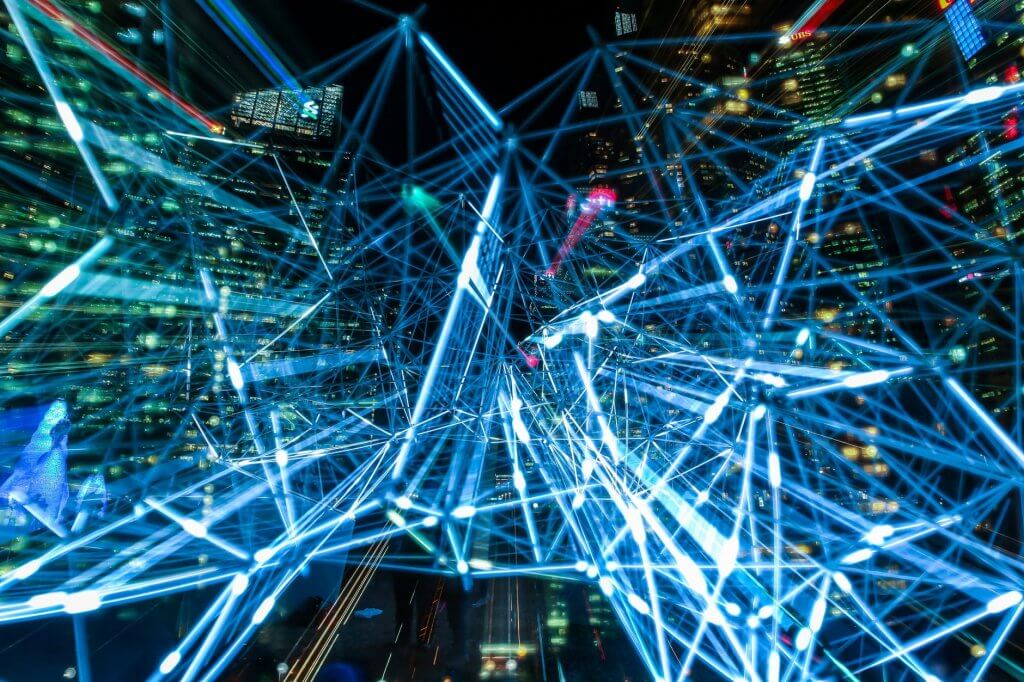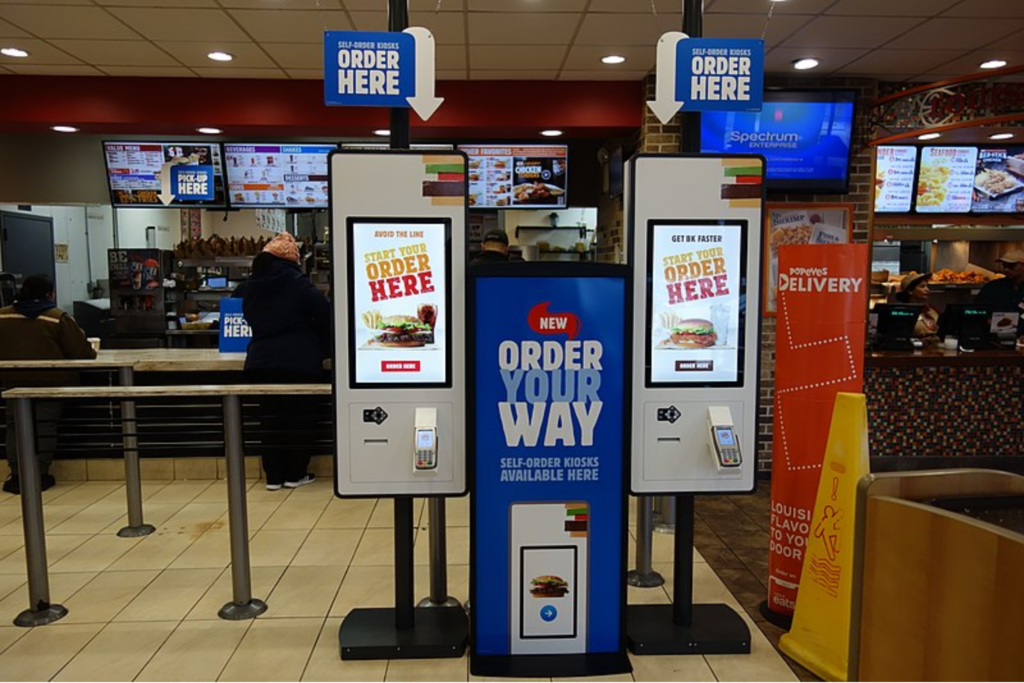If you’ve been paying attention to the news over the past months, you’ve probably seen numerous reports and articles talking about how artificial intelligence (AI) will change the business environment as we know it. While some of those claims can be a bit exaggerated, there’s also some truth to them.
After all, there are plenty of advantages to using artificial intelligence within a business model. Not to mention that 6 out of 15 emerging jobs on LinkedIn are somehow related to artificial intelligence and machine learning. AI-related skills are actually the fastest-growing ones in demand on the platform.
So, it’s pretty clear there’s already a demand for AI even though many business owners still don’t fully understand how it can benefit their brand, services, and products.
Table of Contents
ToggleWhat Is Artificial Intelligence?
Artificial intelligence can be defined as the study and building of computer systems that can simulate intelligent human behavior (like making decisions that would normally be considered smart when made by a human).
The concept of artificial intelligence is often paired up with machine learning. That is the application of AI to systems to make them learn how to make intelligent decisions based on previous experiences and data without requiring explicit programming.
Please keep in mind we’ll be discussing AI and machine learning specifically in regards to marketing and retail in this article. We won’t be covering any complex topics such as how artificial intelligence and machine learning work on a hardware and software level, or how the programming usually works.
3 Ways Artificial Intelligence Will Change Marketing
Let’s start out with AI and marketing since the topic is less specific, and might be of interest to you whether you run a restaurant, a retail chain, a QSR, or any other type of business. Marketing is paramount in any industry, so learning how artificial intelligence can impact marketing ideas and strategies can help you stay ahead of your competition.
1. AI Will Deliver More Personalized Marketing Ideas and Messages
Personalization is more important to consumers than ever. According to various data:
- Around 31% of shoppers wish they could enjoy a more personalized experience.
- 60% of consumers get frustrated if they are exposed to an ad of a product they are not interested in.
- 76% of customers get upset whenever their name is mistaken or unknown in brand communications.
- Consumers are willing to pay around 20% more for a personalized product or service.
- 57% of people say they will willingly share personal data in exchange for more personalized offers and discounts. Over 50% of consumers are also willing to offer such valuable customer data if they receive personalized product recommendations and get to enjoy personalized shopping experience.
Artificial intelligence can help you take advantage of all that. For one, AI can help marketers create in-depth individual customer profiles. Simply put, AI gathers real-time data about different leads and customers’ preferences, offering your marketing team all the relevant information they need to create custom-tailored marketing messages.
Here’s just one example:
AI, with the help of machine learning, can track an individual user’s interactions with your website. It can capture patterns – like which pages a user visits the most, how they engage with your content, and so on – which it later compiles into easy-to-read information for marketers.
So, we’re talking about being able to engage with the right person, with the right message, at the right time. That’s a strategy that’s bound to be successful with most consumers nowadays.
2. Artificial Intelligence Will Boost Productivity
Once AI is fully integrated into marketing departments, we will start seeing a lot of automation replacing manual tasks. For instance, marketers will no longer have to spend hours sifting through customer data to notice patterns, behaviors, and preferences. AI algorithms will take care of that for them, and compile the results accordingly.
That doesn’t mean marketing teams will be replaced by AI. Instead, marketers will have more time at their disposal to work with customer data that’s collected by AI. Plus, marketing teams will still need to oversee AI mechanisms to a certain extent to make sure the right kind of customer data is collected and analyzed.
Artificial intelligence will also help eliminate all the guesswork associated with marketing ideas. AI will make more customer data-driven campaigns possible, so less time will be wasted on brainstorming sessions. Also, your team won’t need to re-do ad campaigns because they weren’t accurate enough.
3. AI Will Impact SEO Marketing
To understand how artificial intelligence is changing SEO, you need to know about RankBrain – Google’s third most important ranking signal.
Unlike past SEO updates, RankBrain is a machine learning algorithm. That means SEO specialists can no longer try to reverse-engineer Google’s SEO algorithms in an attempt to get their content to rank the highest. Nobody will be able to predict why content ranks the way it does because the AI algorithms will continuously make changes based on user behavior.
So, if your marketing team wants to get your brand’s content to rank well, they’ll need to approach SEO in a different way. For example, focusing too much on the traditional SEO tactics (like back-links and keyword lists) will no longer give the same results. If anything, allocating too much manpower and time to that will work against your marketing efforts.
Instead, your marketing team will need to shift focus to new ranking signals that are more relevant to how users use search engines nowadays, such as:
- How far down website visitors scroll on a page.
- The pogo-sticking rate i.e. the rate at which users who click on search engine link bounce off the page by hitting “Back” because it’s not the content they were looking for.
- How much time users spend on your website pages.
- What your overall bounce rate is.
Basically, any kind of indicator that shows how or if a user found your content useful is now pretty much an SEO indicator. Because of that, it’s safe to say that AI in SEO marketing will actually lead to SEO experts and content creators working closer than ever before.
In fact, there’s even a chance that SEO specialists will have their own AI for SEO marketing in the future. It’s likely they’ll use it to implement all the ranking factors we mentioned across all content.
3 Ways Artificial Intelligence Will Change Retail
According to our research, there are many changes that will take place in retail with the introduction of AI. However, we decided to focus on the following three for the moment since they are extremely relevant to the current state of the retail industry and modern consumer trends.
1. AI Will Change the Way Items Are Displayed in Stores
While there are some psychological tricks involved in the way items are displayed in stores, there’s a lot of guesswork involved as well.
Many people like to claim items are displayed in a certain order because it makes people more likely to buy. However, the truth is that there’s no one-size-fits-all solution in this case. One way of displaying items in one of your stores might not work at all in another store. Not all consumers are alike, and they all have different triggers, after all.
One way artificial intelligence can help with that is by analyzing sales data from one location, and finding certain patters in the purchasing behaviors of most customers (like which items they prefer the most, and which ones they often buy together, for instance).
Based on that customer data, AI can offer suggestions regarding how items can be placed in your stores (such as which products should be placed next to each other) to get customers to buy more.
So, artificial intelligence will likely cause a shift from item arrangements based on speculation to data-driven item display orders.
2. Retail Websites Will Start Relying More on Chatbots
Live-chat support has become an important tool for any business – be it a retail, shipping, or SaaS one. But it arguably has a strong impact in the retail industry. After all, a potential customer interested in a SaaS plan might not have a problem waiting a day or two to receive a response to the email they sent. But a potential client interested in buying a retail product likely wants to have their questions answered right then and there so that they can make a quick decision.
Well, with the rise of AI in the retail industry, live-chat support might get an overhaul. We’re talking about support chatbots – AI-driven software that can interact with consumers in an almost natural manner.
The main incentive to start using AI-driven chatbots instead of live-chat support reps will be the fact that they can quickly process consumer questions, and offer a fast, relevant response. What’s more, AI chatbots can eliminate customer support burnout since they can pretty much function 24/7.
Here’s more data that confirms AI chatbots are a step in the right direction for any retail business:
- Approximately 57% of consumers in the US say they are interested in dealing with a chatbot.
- Chatbots can potentially reduce customer service costs by around 30%.
- According to a Zendesk survey of 7,000 people, 53% of consumers say it’s important for them to be able to solve service-related issues on their own. An AI chatbot can provide customers with relevant solutions and links to help them do just that.
Does this mean your customer support team will be replaced by chatbots, though? Not at all – chatbots will actually free up your support teams. They won’t have to spend hours doing live-chat support. Instead, they’ll have more time to focus on solving more complex support tickets, addressing customer reviews, and nurturing client relationships to boost loyalty levels and turn customers into brand advocates.
3. AI Will Help Retailers Offer Improved Customer Experiences
Since retail AI will continuously analyze customer behavioral patterns, it will eventually get to “know” your clients in a way. It will likely get to the point where AI will be able to anticipate what customers want, and when they want it.
One example out of many would be how AI could use customer data to serve your clients a coupon or discount for a specific product they might be interested in while they’re browsing for something else. This way, the unexpected (but very welcomed) coupon or discount could trigger an extra purchase from the customer in question. That makes them happy since their needs were met without having to mention anything about them, and it generates extra profit for your business.
Why the focus on artificial intelligence and the customer experience, you ask? Because, according to research, customer experience will end up overtaking both price and product as the main brand differentiator. And that’s supposed to happen by 2020 – the year AI is expected to “touch everything,” according to Forbes.
Obviously, the sooner you learn about that, and the sooner you start coming up with ways to offer your clients a better experience through AI, the better.
One Way AI Will Benefit Both Marketing and Retail
True, some of the benefits we outlined above can work for both retailers and marketers. For instance, marketers could use AI-driven chatbots to aggregate and monitor customer data in real-time, and retailers could definitely take advantage of the new AI-oriented SEO ranking factors.
But one very specific way artificial intelligence can be extremely useful for both marketers and retailers is through advanced customer segmentation. Due to constant customer data analysis, AI can help both marketing teams and retailers separate consumers in multiple, different groups, making it easier to target very specific niches.
Looking for a Data-Driven Platform That Offers Advanced Customer Segmentation?
There’s still some time until artificial intelligence will become common – not to mention affordable – in marketing and retail. Until then, you can try using platforms like Spoonity if you’re looking for a reliable way to collect relevant customer data and segment your clients. Our fully-integrated loyalty platform offers advanced analytics such as:
- Who your most profitable customers are.
- Which items are top-sellers.
- Which store your customers like to shop at the most.
- What day of the week sees the most activity from your customers.
- Which customers engage the most with your loyalty program.
- What demographics characterize your client base.
Our platform has many other perks to offer, but we figured this highlight might interest you the most given the topic of the article. If you’d like to know more about Spoonity, feel free to get in touch with us.
In Conclusion
To sum it all up, artificial intelligence is here to stay. Within the next years, we’ll likely see more and more applications for AI in marketing and retail – from new, more user-oriented SEO algorithms and AI-driven chatbots to enhanced customer data collection and segmentation.
Feel free to share this article with your friends and work colleagues if you think they’d be interested in it. Also, we’d very much like to hear what your opinions are regarding the impact of AI on marketing and retail.











